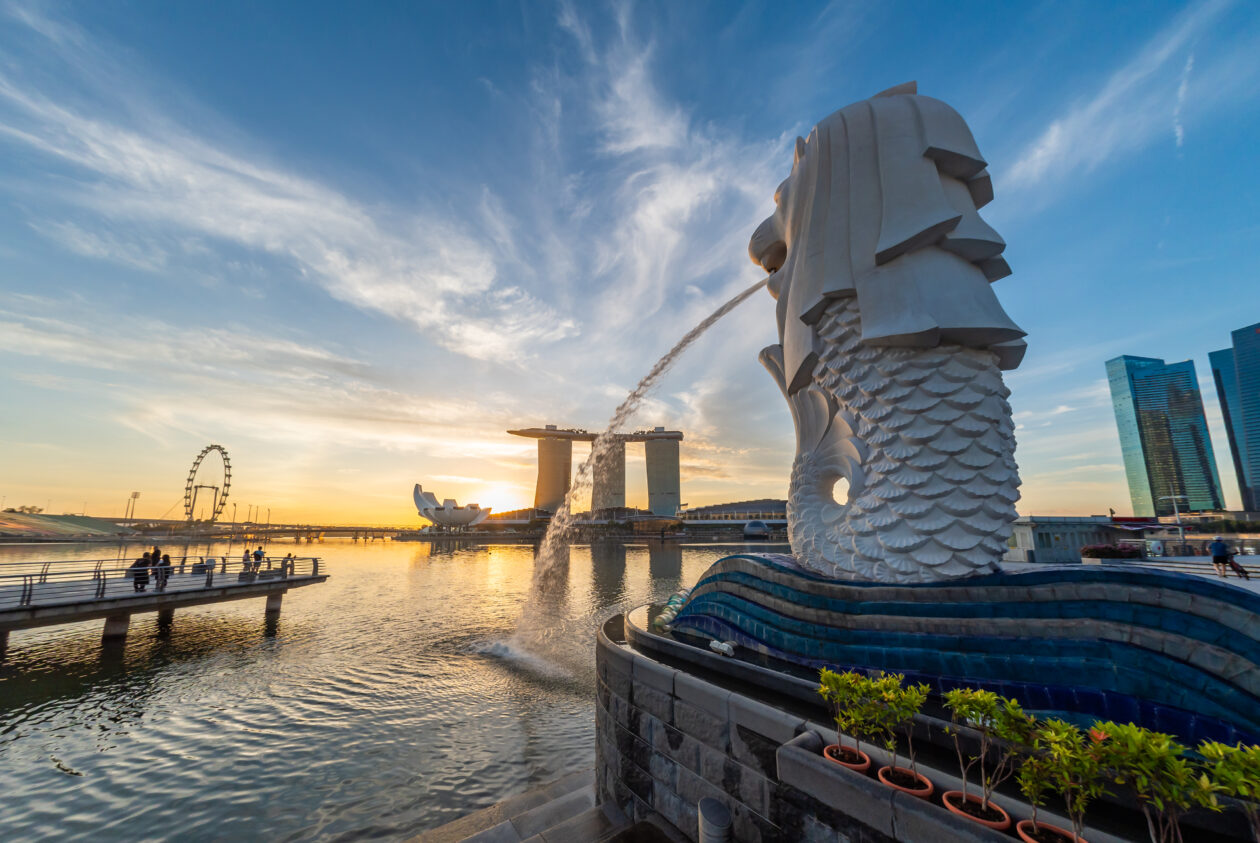DBS Digital Exchange, one of Asia’s first bank-backed cryptocurrency exchanges, last month reported an 80% surge in Bitcoin trading volume in 2022 from the prior year. The exchange, known as DDEx, said Bitcoin it held in custody had doubled and Ether tokens in its custody rose 60%.
DDEx declined to elaborate on what that equated to in trading fees or the actual amount of Bitcoin and Ether in custody. The exchange said its customer numbers doubled to 1,200.
In an email interview with Forkast’s Pradipta Mukherjee, DDEx’s chief executive Lionel Lim said investors are no longer blindly chasing yields after the collapse of crypto exchanges and lending platforms last year. Instead, they are seeking safe, regulated platforms to access the cryptocurrency market and DDEx has been a beneficiary.
The following Q&A has been edited for clarity and length.
Pradipta Mukherjee: DDEx reported a 80% rise in Bitcoin trading volumes. How do you intend to leverage this?
Lionel Lim: We remain focused on providing a safe and reliable gateway for investors who believe in the long-term potential of digital assets. We have observed investor sentiment shift towards trust and stability in the wake of the scandals that rocked the digital asset industry last year. The blind chase for yield is over. Investors are now seeking safe harbors and prefer trusted, regulated platforms to access the market. DBS has been a beneficiary of this broader flight of safety.
Mukherjee: What is your target for 2023?
Lim: We believe 2023 must be the year for the digital asset industry to rebuild trust and confidence, and regulated, bank-backed exchanges like DDEx have an important role to play in this process. Growing our business is important, but we will continue to do so in a prudent and measured manner.
At the same time, we are keen to explore innovations that enhance the value we bring to customers. For instance, the self-directed cryptocurrency trading functionality via the DBS digibank app that was introduced last September. It provides access to DDEx’s trading solutions, and today, more than 90% of trades by DBS wealth clients are executed digitally.
We are also keen to add more coins for trading on DDEx, focused on coins based on Layer 1 blockchains, or those with clear and distinctive use cases. Last October, we brought Polkadot and Cardano onto DDEx, bringing the total number of cryptocurrencies available for spot trading to six – in addition to Bitcoin, Ether, Bitcoin Cash and XRP.
To be clear, we’re not rushing to bring as many coins as we can. We would not be too interested in vanity coins.
Regarding Security Token Offerings (STO), we have seen strong interest from our corporate clients, but the macro conditions were unfortunately not conducive in 2022 to bring them to market. We will continue to explore origination opportunities for high quality STO listings in 2023. [An STO is a token on the blockchain that represents a stake in a real-world regulated asset, which can include equities or bonds.]
DDEx will not be chasing trends, especially if they present outsized risks to our clients. We steered clear of yield farming when almost every other exchange was offering this at the height of crypto mania in 2021. We received brickbats for not being progressive, but we were very clear that customers were being exposed to a lot of risk that they may not be fully aware of. The events of 2022 showed us that we made the right call for our customers.

Mukherjee: Your customers have doubled in 2022 to 1,200 registered users. Why are they moving to DDEx?
Lim: We are backed by DBS, the largest bank in Southeast Asia, so we can leverage the capabilities offered by the DBS Group.
One example is the digital asset custody services. Unlike most other exchanges, DDEx does not hold any of our customer assets. These are held separately by DBS bank using institutional-grade cold wallets. DBS also conducts coin purity checks on all digital assets entering its custody, and the bank complies with all prevailing anti-money laundering (AML), know-your-customer (KYC) standards. These provide a distinct competitive advantage for DDEx.
Mukherjee: Are you in talks with the Monetary Authority of Singapore (MAS) and seeking clarity on when DDEx can open up to retail traders?
Lim: We are focused on serving corporate and institutional investors, accredited investors and family offices.
With retail investors, the MAS put out a consultation paper last October to seek feedback on proposed regulatory measures to mitigate risk in the cryptocurrency space. We are supportive of the move to put in place guardrails such as a thorough risk assessment to better protect retail investors. DBS will take guidance from the proposal and will continue to work closely with regulators to shape a safe environment for all customers in Singapore.
Mukherjee: A lot of voices in the crypto community industry say more traders will move to decentralized exchanges. What do you think?
Lim: Post-FTX, the industry saw significant outflows from centralized to decentralized exchanges. This suggests a shift in customer preferences for self-custody to retain direct ownership of assets. However, the collapse of FTX was not so much a question of custody, but the need for any business of this nature to have rigorous governance protocols.
Centralized exchanges will continue to retain their popularity because of their relative ease of use, but we anticipate a shift in how centralized exchanges operate and a move to adopt bank-grade infrastructure and risk management.
One obvious low-hanging fruit is the clear segregation between custody and trading assets. DDEx has already incorporated such safeguards and we are engaging other players and regulators on sharing our experience and best practices.





